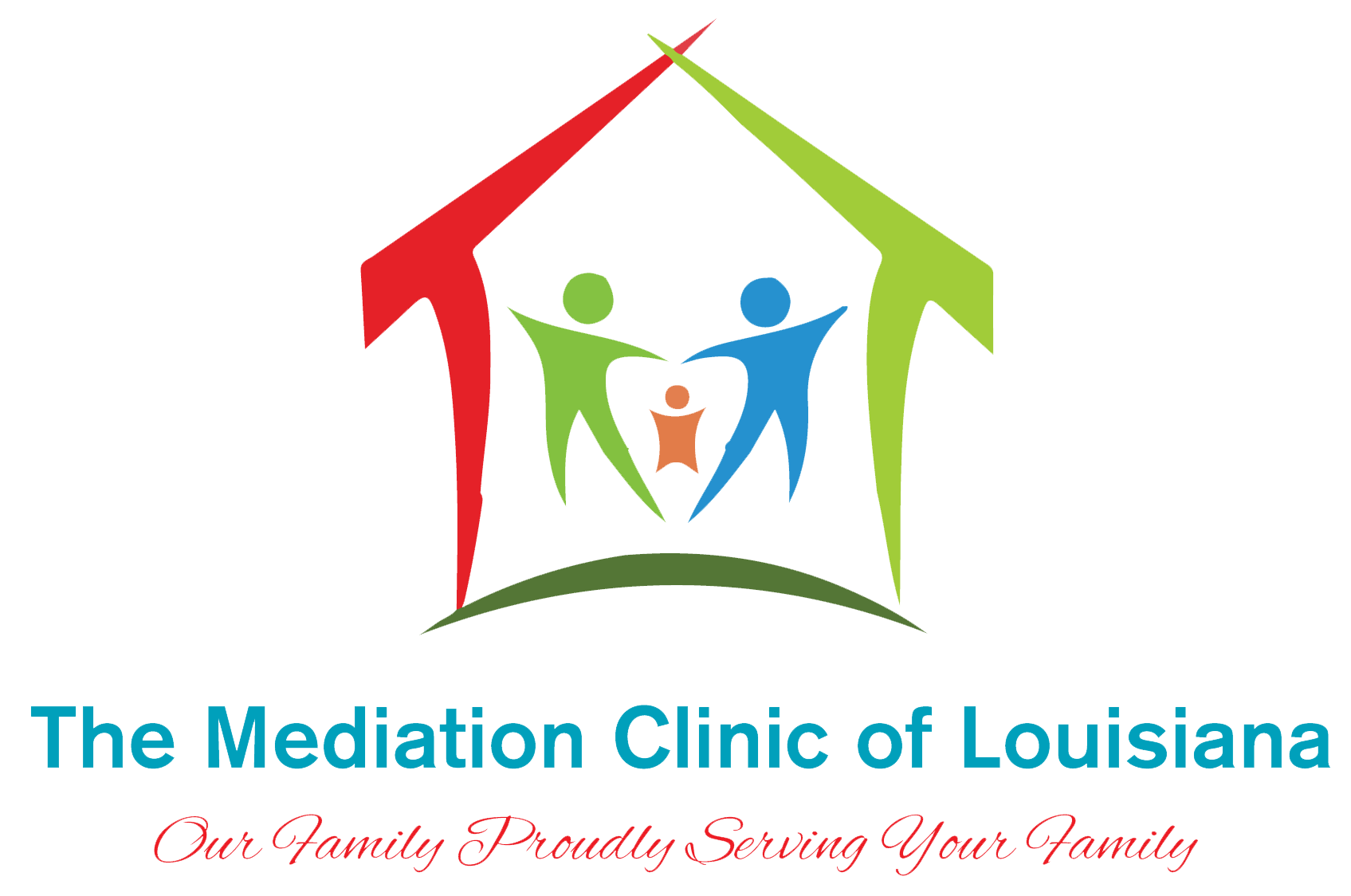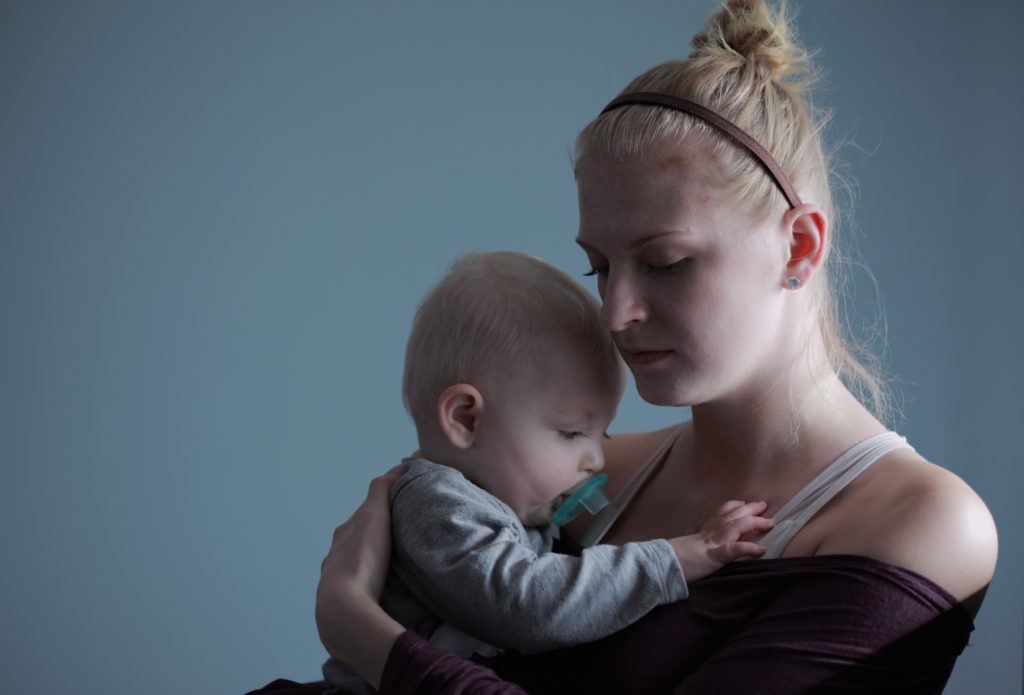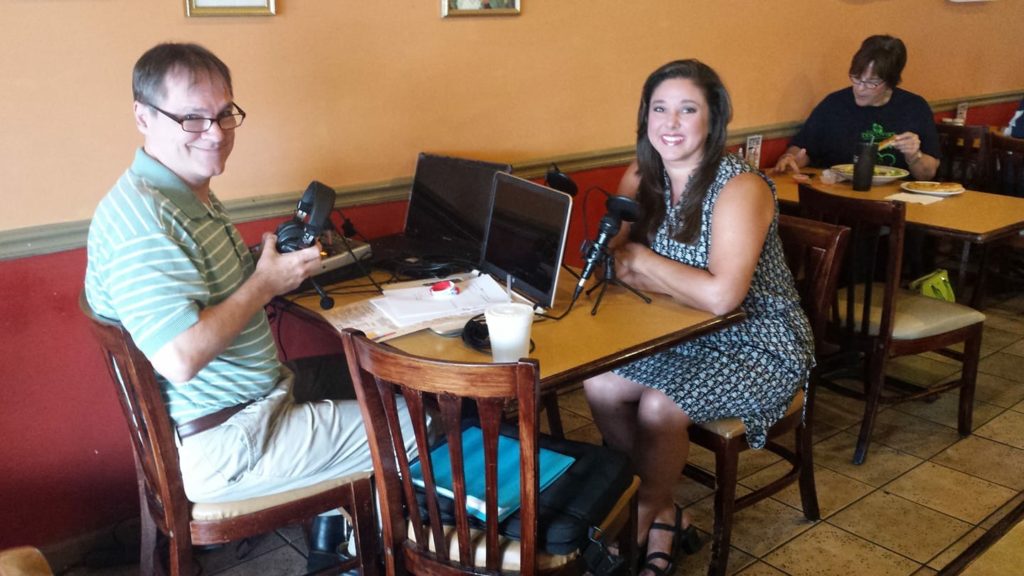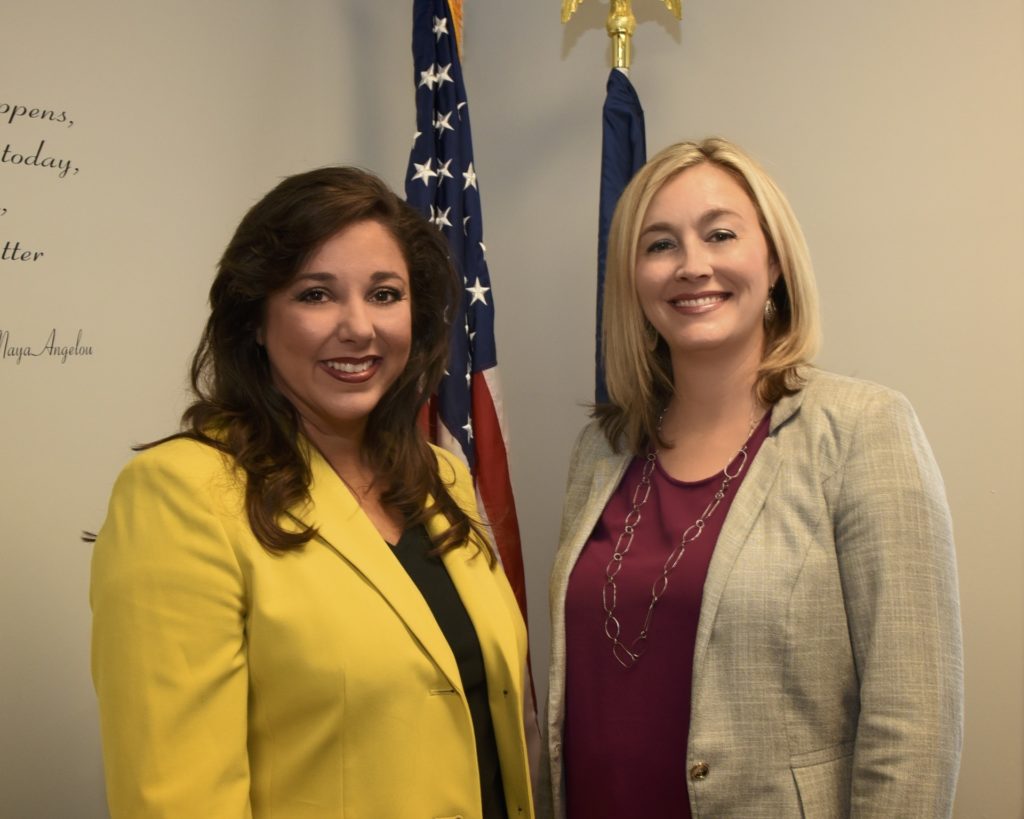Blog
Check Out Some of Our Posts!
Will you contract to marry me?
Engagements are more than a promise of love. In Louisiana caselaw, engagements are considered contracts that can be breached if marriage doesn’t follow. Though there is no formal contract to marry, courts have ruled that an engagement amounts to an informal agreement insofar as there is “a promise to marry” made between parties during engagement. Because an engagement is treated like a contract in the eyes of the law, a breach of promise to marry (or calling off an engagement) has traditionally been treated as a tort[i] in which damages may be awarded. Although there have been no Louisiana cases in the twenty-first century where a court has awarded damages for a breach of the promise to marry;[ii] in prior caselaw, to recover damages the petitioner party must prove (1) that they are free from fault for the engagement ending and (2) that the damages suffered were caused by the ending of the engagement. Interestingly, an engagement ring is not considered a gift in Louisiana Law, but it is actually considered a suspensive condition. This means that the ring can be recovered by the party proposing if the couple does not marry because it was “given in contemplation of marriage.”[iii] The most recent case regarding engagement ring recovery in Louisiana originated in Livingston Parish. Wayne Ray Chutz, an elected judge on Louisiana’s 1st Circuit Court of Appeal, sued his ex-girlfriend, Ellyn Julia Clevenger, for the return of the $62,000 engagement ring given to Clevenger as part of a marriage proposal.[iv] However, Clevenger claims this gift was not in contemplation of marriage as she alleged that Chutz never intended to marry her. In his petition, Chutz claimed he was the legal owner of the ring, because it was given “in contemplation of” a marriage that never took place. Thus, in accordance with caselaw, the ring should be returned to his possession. However, Clevenger presented a solid argument in opposition to his claims. Clevenger alleged that the ring was not actually an engagement ring because Chutz never actually intended to marry her. She alleged that Chutz gave her the ring in an effort to persuade her to get back together with him after the couple first split in 2014 and to stop her from talking about marriage. She called the piece of jewelry a “shut her up ring.” Clevenger said, “He never actually asked me to marry him. We never set a date … He was very noncommittal about it.” Clevenger alleged that Chutz’s intentions were evident when he shut down her suggestions about setting a date or choosing a venue. She also said he allowed her to pick out a ring, which appeared one day on the table when she came home from work with no proposal, she said. Unfortunately for current case law, this case was dismissed in February of 2021 after Chutz decided to discontinue the lawsuit. Both parties have great arguments, and this would have been an interesting case to see play out in the courtroom. However, unless Clevenger was able to provide substantial proof that the ring was not a gift in contemplation of marriage, Chutz likely would have won the case based on the outcomes of previous caselaw. [i] § 8:10. Civil cause of action, Domestic Torts § 8:10. [ii] See, Morgan v. Yarborough, 5 La. Ann. 316, 317 (1850); Daigle v. Fournet, 141 So. 2d 406, 407 (La. Ct. App. 1962); Glass v. Wiltz, 551 So. 2d 32, 32 (La. Ct. App.), writ denied, 552 So. 2d 400 (La. 1989). [iii] Busse v. Lambert, 00-1032 (La. App. 5 Cir. 10/31/00), 773 So. 2d 182, writ denied, 2000-3224 (La. 1/26/01), 782 So. 2d 633; Daigle v. Fournet, 141 So. 2d 406 (La. Ct. App. 1962). [iv] https://www.theadvocate.com/baton_rouge/news/article_1ffece6a-6161-11e9-a218-4f72ec9de7fa.html
MEDIATION BREAKS INTO PRISON
By: Caroline A. Broussard and Justine M. Ware As seen in the Louisiana Bar Journal, Taking a Schein to Arbitration, October/November 2021 Vol. 69, No. 3 at 217-218 Louisiana has some of the highest incarcerations and recidivism rates in the United States. Allison McCrary, after obtaining her JD degree from Loyola University’s College of law in New Orleans, decided to use her background in social justice and mediation in towards reducing this fact. McCrary created an organization with the goal of improving incarcerated persons’ transition back into the home through mediation. She founded the Re-entry Mediation Institute of Louisiana (REMILA) in 2018. REMILA seeks to decrease recidivism rates, improve a person’s transition home from incarceration, and nurture sustainable support through positive relationships with loved ones. Through REMILA, incarcerated persons have the opportunity to sit down prior to release from a correctional facility with family members and two mediators. During the mediation, the incarcerated person and his/her family will make a plan for a smooth re-entry. What makes this program unique to regular mediations is the nature of the mediator panel. Through REMILA, the role of the mediator is held by formerly incarcerated people and/or loved ones of presently or formerly incarcerated people. These mediators are given the necessary skills through a 50-hour training program, monthly training and an apprenticeship program.[1] Opening these positions to formerly incarcerated people provides an additional level of understanding to the mediations. Rebuilding relationships and resolving any remaining conflict are critical to a successful transition back into society and REMILA aids in facilitating this goal.[2] Re-entry is the transition from life in incarceration to life in the community. Although re-entry may be inevitable, this does not mean that it will be successful.[3] Recidivism – the tendency to relapse into a previous mode of behavior, especially into criminal behavior – is an unfortunate and common result of re-entry. Individuals released from prison are likely to face hardships after enduring the stress and isolation of a prison environment. Many have limited job skills, addiction problems, strained relationships, and may have difficulty adjusting to cultural changes that have occurred during their time in correctional facilities.[4] Those reintegrating into society tend to lean on those around them for support. Unfortunately, if those familial and amicable relationships are strained at the outset of re-entry. Those crucial people in the reintegrating person’s life may be unable to adequately aid them in re-entry.[5] These factors combined contribute to high recidivism rates in the United States.[6] In Louisiana, more than 18,000 people are released from the Department of Corrections (DOC) facilities each year. According to the DOC, 43% of those released returned to prison within five years. This creates a cycle of incarceration and return to prison which REMILA seeks to decrease.[7] Re-entry mediation is an attempt to breakdown these barriers in hopes of lowering the likelihood that the formerly incarcerated rated person recidivates. However, there is an additional hurdle that must be overcome to have a successful re-entry mediation. Often, incarcerated people may harbor negative feelings towards authority figures.[8] If the parties involved in mediation feel as though they cannot speak freely or are being judged, then the mediation is less likely to be effective. REMILA combats this by training formerly incarcerated people and others who will be mediators in re-entry mediations. The 50-hour training program teaches prospective mediators REMILA’s model of mediation, how to mediate a case from start to finish, and how to handle existing and potential conflicts. The training program is an interactive program that utilizes role-playing to stimulate the real-life situations the mediators will encounter. By encouraging people with conviction histories to apply to become a mediator through REMILA, the program is adding a level of understanding to reentry mediations that has not previously been present. The Community Mediation Maryland’s Prison Re-entry Mediation Program (CMM) is a comparative program to REMILA ad has seen success thus far. This program facilitates re-entry mediations in a similar way to REMILA and also targets recruitment to those who have served time to ensure diversity among their mediators.[9] However, not all formerly incarcerated persons will be cleared to enter correctional facilities for the purposes of mediation depending on their conviction history. Regardless, these people will still be trained as mediators for mediations outside the facility. In 2014, CMM hired Choice Research Associates, and independent evaluator, to evaluate the effectiveness of its re-entry program. Choice Research Associates found that the probability of re-arrest is reduced by 13%, and the probability of future conviction is reduced by 15% for those who participated in re-entry mediation compared to those who did not. Additionally, the research showed that each additional individual mediation reduced the probability of rearrest by 8%.[10] REMILA is also working in close partnership with Choice Research Associates as a third party to collect and analyze the data and recidivism rates. In 2013, CMM provided evaluation forms to participants in the re-entry program three months after its initial mediation with the program. Of the 96 participants, 80% agree they partake in creative problem solving when faced with a conflict. Significantly, these evaluations also showed that of the “inside” participants, meaning those who were incarcerated at the time of the mediation, 80% reported they felt they were more prepared to return home.[11] Given these results, it is clear that the CMM and REMILA Re-entry Mediation Models are an effective tool for the individuals, their families and the community. REMILA trained and hired its first group of system-impacted mediators in September 2021 through a 50-hour initial training and two-year performance-based evaluation apprenticeship program. It also launched its pilot project in Plaquemines Parish Detention Center, a maximum-security facility, in June 2021, to be followed by St. Tammany Parish jail. To get involved, support or learn more, go online to www.reentrymediation.org. Sources: [1] “About Re-Entry Mediation,” www.reentrymediation.org/about [2] Eric Mondesir, “Recidivism and Relationships,” www.reentrymediation.org/evaluation-and-data [3] Mondesir, www.reentrymediation.org/evaluation-and-data [4] Lorig Charkoudian and Shawn Flower, “Prisoner Re-Entry Medaition,” Disp. Resol. Mag., at 14, 14 (2010). [5] Mondesir, www.reentrymediation.org/evaluation-and-data [6] Nayely Esparza Flores, “Contributing Factors to Mass Incarceration and Recidivism,” Themis Rsch. J. Of Just. & Forensic Sci., Vol. 6, Article 4 at 56, 57 (2018). [7] Scott Peyton, “Employment and Second Chances in Louisiana,” Right On Crime (April 17, 2019). [8] Shawn Anderson, “Ban the Box: Mediation’s Place in Criminal Reentry and Employment’s Rights,” 19 Pepp. Disp. Resol. L.J. 157, 166 (2019). [9] However, not all formerly incarcerated people will be cleared to enter correctional facilities for the purposes of mediation depending on their conviction history. Regardless, these people will still be trained as mediators for mediations outside the facility. https://re-entrymediation.org/start-a-program/best-practices-sample-forms/. [10] Shawn M. Flower, Community Mediation Maryland in-Depth Recidivism Report Analysis (Nov. 2014) https://re-entrymediation.org/evaluation-results/. [11] Flower, https://re-entrymediation.org/evaluation-results/. This article was written under the supervision of Paul W Breaux, Louisiana State University adjunct clinical professor and former chair of the Louisiana State Bar Association’s Alternative Dispute Resolution Section. As seen in the Louisiana Bar Journal, Taking a Schein to Arbitration, October/November 2021 Vol. 69, No. 3 at 217-218
Consequences of Marital and Divorce Conflict: Save the Health of You and Your Child(ren) with Mediation
The end of a relationship does not necessarily indicate the end of conflict between former spouses or partners. This is especially so with couples who have children together because it will be difficult to avoid contact, thus leading to ample opportunities for continued or post-divorce conflict.[1] After the termination of a marriage, sometimes more potential conflict opportunities arise such as property division, spousal support, custody, visitation, child support, etc. Although conflict is a normal part of marriage and divorce, excessive conflict can have negative effects on individual mental and physical health, family health, and child-well-being. Research has highlighted links between marital and divorce conflict and mental health issues such as depression, eating disorders, being physically and/or psychologically abusive to your current partner or ex-partner, and male alcohol problems. Research has also found associations between marital and divorce conflict and poorer overall physical health. Hostile relationship contact has been linked to an increase in blood pressure and vascular resistance. The extent of the hostility has also been linked to a negative effect in hormone levels; however, this tends to effect women more hormonally than men. Although the way conflict is expressed matters most in regards to overall physical health, regardless of the style of expression, simply disagreeing with someone has negative effects on the body.[2] In regards to the familial and child well-being, marital and divorce conflict has been shown to be connected to poorer parenting, problematic parent-child attachments, and a greater frequency and intensity of parent-child or sibling-sibling conflict. These conflicts can be especially harmful for children when the conflicts are centered around child-rearing or other issues related to the child(ren). Research has revealed numerous problematic effects of marital and divorce conflict on children, including health problems, depression, anxiety, conduct problems, and low self-esteem. Although children can be highly destressed by both verbal and physical conflict between parents, they can be reassured by healthy conflict resolution. When children see parents engaging in calm discussions while engaged in a conflict, children tend to react more positively especially when children see parents compromising with each other so as to resolve their differences.[3] Mediation can be an opportunity for couples to actively try to avoid excessive negative conflict for the benefit and well-being of the individual parties as well as the children. The mediation process allows divorces, custody battles, etc. to progress in a smooth and orderly fashion. Rather than spending an excess amount of money in court costs and attorney fees, mediation is a cheaper, less- stressful option. Mediation can be done behind the confidential, closed doors of a mediator who will act as an unbiased third party in order to help you resolve conflict as quickly and positively as possible thus, preventing or limiting many of the aforementioned problems. [1] Yeager, E. O. “High Conflict Couple Interaction and the Role of Relative Power.” Sociology Compass ¾ (2009):672-688 [2] Wright, B. & Loving, T. “Health Implications of Conflict in Close Relationships.” Social and Personality Psychology Compass 5/8 (2011):552-562 [3] Goeke-Morey, M.C., Cummings, E.M., and Papp, L.M. “Children and Marital Conflict Resolution: Implications for Emotional Security and Adjustment.” Journal of Family Psychology 21,4 (2007): 744-753
Mediation is the Answer When the Courts Can’t Seem to Get it Right
When parents of minor children decide to go their separate ways, it’s scary for the parents and children. Both parents, while at odds, are worried about the best interests of their children and might have different ideas about what that is. It takes a lot of patience and compassion to find common ground and that’s in short supply during a separation and divorce. Most parents would assume that the Court knows how to fix the issues between the parents and that the right thing will happen once they go through the litigation process. Unfortunately, that is not the case. Far from it. In reading the attached article, it is clear that not all jurisdictions are up to date on the most recent studies about children regarding custody arrangements. In fact, there is no universal means for resolving custody, determining the best interest of the children, or custody requirements. For example, the Ohio counties discussed in the article below have sweeping provisions that allow for only two nights of overnight visitation every 14 days for the non-domiciliary parent. This is at complete odds with all recent studies which suggest that equal parenting time should be encouraged. In Louisiana, while shared custody is preferred, it is certainly not ordered every time it should be and sometimes its ordered when it is simply not feasible. Not withstanding that, what about flexibility for the families? Not all families are the same. They have different traditions and cultural values. They have varying work schedules. The ages of the children command different things from their parents. It seems remiss for a court to not take that into consideration. Ultimately, it is a complete disservice to have such a ridged approach to parenting time with each individual parent. That’s why mediation is the best option for most separating couples. It’s an opportunity for parents to sit at a table together and have an open discussion about what’s best for the children. At the end of the process, the couple has decided together what’s best for their family. It hasn’t been left up to a third party judge who doesn’t know the parties, the children, or the traditions and values of the family. Those families that make their own decisions about how to move forward after a separation tend to be more satisfied with their custody arrangement than those that have a schedule imposed on them by a court. Featured Article: Divorce is hard enough on children — why are our courts making it worse?
Complex Property Divisions and Mediation
Disputes between who owns what are likely to arise during a divorce, or maybe you want to protect your property before getting married. Many people don’t consider protecting their assets before getting married. Louisiana is a “community property” state, meaning that when you get married, your assets (as well as income and debt) also become the property of your spouse if acquired during the marriage. This is known as the “matrimonial regime.” An end-of-marriage dispute involving property can thus become very complicated and costly for both parties. Some examples of assets or debt include, but are not limited to cars, auto loans, furniture, insurance, real estate, investment accounts, or credit card debt. Taxes and retirement funds are also considered. Unless you have a prenuptial agreement and the divisions are clearly defined, this sounds like a job for mediation, the purpose of which is to obtain a fair agreement between all parties without going to court, or even hiring attorneys. When it comes to dividing property, the court will consider several factors, including the dates of acquisition, how expenses for the property were paid, is it revenue generating and to what extent, the skill necessary to operate the company and whether that skill belongs to only one party (for example, if the parties own a beauty shop but only the husband is a licensed barber, then it makes sense that he keeps the shop and offset the value with other assets or cash.) We have seen parties spend upward of $120,000 fighting in property disputes after discovery, questioning, depositions, hearing, etc. Most people have a ball park idea about what their property is worth and can resolve it if they sit at the table and let cooler heads prevail. Remember, mediation isn’t used to fight for what’s yours in court, it’s used to help you from going there in the first place. It’s possible that you may not get the outcome you are seeking. Once it’s in the hands of a judge, the matter is beyond your control. When it comes to mediation, always think of court as your last option.
It’s all about the Children, Human or Furry
In some custody disputes, the judge will sometimes recommend that both parties to attend mediation. Usually, a judge will give parties the option to agree upon a mediator, but if they can’t, then it’ll be appointed by the court. The first thing to consider is that, in Louisiana, kids in the middle of divorcing parents do not automatically get legal representation and consequently, they can be the most vulnerable to abuse. Not necessarily abuse by their parents, but victims to abuse created by the system. They can be subject to orders they dislike or orders that are impractical, they can be party to custody evaluations, they can be poked and prodded by mental health experts, and they can even made to testify. There’s no universal definition of “best interests,” although all states, including the District of Columbia and some U.S. territories, have laws governing the bests interests of children, including Louisiana. Ultimately, what’s in the child’s best interest boils down to making timely decisions that are best for the child’s safety and well-being. There are several things to consider, like family bonds or other legal protections for children. Sometimes, it may come down to the child’s wishes, although Louisiana doesn’t have any laws requiring this and a child’s testimony is given its due weight based on the age and maturity of the child. According to the Children’s Code Art. 675(A), children shall be placed in “least restrictive, most family-like, and most appropriate setting available in close proximity to the parents’ homes.” Louisiana even recognized how much of a toll the court process takes on the kids. In Children’s Code Art. 601, courts are encouraged to have proceedings “conducted expeditiously” to avoid delays in “achieving permanency” since uprooting after a long delay can be traumatic to a child. “This title shall be administered and interpreted to avoid unnecessary interference with family privacy and trauma to the child,” according to the statute, while also making it “authorize the protective and prevention intervention needed for the health, safety, and well-being of children.” These are some of things to consider regarding custody disputes involving kids. But does it necessarily involve children? Anyone with pets knows they are as much a part of the family as our children, which begs the question: What happens to the cat or the dog, or other pets, in custody disputes? This is where it gets a little murky since Louisiana doesn’t offer much guidance on this subject. Legally, according to Louisiana Civil Code Article 473, pets are considered “corporeal movables,” which is essentially a piece of property that encompasses possessions such as furniture or appliances. However, there is good news. Courts have recognized the emotional bond between animals and people and the family status given to pets by their owners. This stems from the Barrios v. Safeway Insurance Company case, in which a Louisiana appellate court in 2012 upheld at $10,000 award for emotional damages to a pet owner. However, in resolving the ‘custody’ of a pet, they are treated like property. How much is the pet worth? Yes, you owe the other owner half the value. Some things the court will consider in determining where the pet will live (or ‘use and possession’ as the courts say) is deciding when the pet was bought, is it a service pet, can the requesting party take care of the pet, etc. At the Mediation Clinic of Louisiana, every mediator on our staff has been practicing family law over 15 years and have been involved in many custody battles. Most importantly, we have active families and are parents and pet owners ourselves. We understand the trauma of separation and the peace that mediation can bring. Mediation does not impose a settlement; the purpose is to help the parties develop a settlement that works well for them and their children…human or furry.
Healing, Not Hurting
Arita Bohannan appeared on the Walt Bennetti Show on WGSO 990 AM and was able to explain, in her own words, what mediation means to her. “There has to be a better way to help families end a marriage and move into the next phase of their life. The court system is so adversarial. There is no way around, its the way they are designed to ensure they are fair. It encourages fighting…not intentionally, but that’s the way it’s designed. My law partner, Lauren Rogers and I started taking classes and doing mediations. Having people leave our offices with an outcome that THEY helped reach, rather than what a judge told them they had to do…it was making a difference in people lives. For me, I’m 16 years in and not at the end of my career but at a point where I want to help people heal, not hurt. People are arguing about who’s lamp or book this is but that stuff isn’t really what they are upset about. It’s the underlying issues. And that’s whats great about mediation. We are at a table together. With our without their lawyers. It’s an opportunity to say things to each other that you can’t say in court. They can get the past off their chest. To look at each other eye to eye and say ‘can we move on, can we just resolve it?’ What I discovered is that when people have a hand in resolving the issue, for example a visitation schedule they aren’t completely in love with, they are still much more likely to follow it, they are much more compliant, and tend not to fight with each other when life happens…like someone being five minutes late. They start putting their kids first. Its hard to look in the eyes of your ex and not see your children looking back. So the mediation process itself brings healing. It’s so rewarding for me personally to see people happy with their outcomes. I’ve left court so many times with my clients literally not having a chance to say a word and explaining to them in an elevator what just happened to their life. The same outcome in the case may ultimately happen in mediation, but the difference is that they had a voice. They were heard and had a chance to listen. They weren’t just handed a judgment. As a mediator, I can’t be called to testify. I am literally there to help facilitate a resolution that THEY reach. It’s wonderful because they can say what they really feel, what they really want or need, without fear that it will be used against them in court. Mediation can be used at an phase in your divorce…or even several years later if additional issues arise. I can’t change what happened to these people. I can’t fix their marriage.But I can help them end it without torturing each other. I can help them end it with their dignity in tact. I can help them end it without ruining their children’s live. I can help them have peace. And frankly, I consider it an honor to do so.”
A Smarter Way to Say Goodbye
There are many reasons why a divorce or family matter can lead to hiring attorneys or ending up in court, but these shouldn’t necessarily be your first steps. There’s mediation. What is mediation? Think of it as an alternative to going to court. The mediators at our clinic are neutral, conflict resolution-trained attorneys that help you resolve a dispute in a professional and a less confrontational manner as opposed to a court-mandated solution that may not work for either of the parties. Mediation covers a broad array conflicts, but the service at the Mediation Clinic of Louisiana is commonly used for disputes involving divorce, child support/custody, and property. Why use mediation? There are many reasons to seek mediation, the biggest being savings on time and money. Why use our mediators? Our mediators are all practicing attorneys who’s primary area of practice is high-conflict family law cases. They are uniquely qualified to help you resolve the most personal…and important…areas of your life. Can you, or should you, still have an attorney present for mediation? Of course! Having someone educated in the law is a welcome addition to any mediation. However, it is certainly not required. Many parties are successful at mediation without hiring attorneys or without their attorneys being present. The important thing is that the parties feel comfortable. Usually, each party will hire their own attorneys who will negotiate on their behalf. Mediation doesn’t necessarily involve this step, although we welcome attorneys to the mediation process. The goal of mediation is to arrive at agreements that work for the parties and their children. According to the American Psychological Association, at least 40 percent of marriages in the U.S. end in divorce. If there bad feelings arise between both parties, expect divorce proceedings to take months, perhaps years. Before automatically resorting to hiring an attorney or going to court, first consider these statistics. Louisiana courts see thousands of new cases each year. Add those to the cases to the load that judges are required to hear. The East Baton Rouge Family Court, which is the state’s only stand-alone family court and handles cases involving divorce, custody disputes, spousal support, community property matters, among other types of cases. The court has four judges. In 2016, the court received 4,700 new filings, according to an annual report from the Louisiana Supreme Court. Be prepared to spend tens of thousands of dollars, too. The average Louisiana divorce costs anywhere in between $20,000 to $30,000 in legal fees for each person alone. One thing you should know about civil matters in Louisiana — it can be a mixed bag. Where criminal law is firmly guided by precedence established by a single case, judges in the Pelican State have the discretion to rule based on their own interpretation of the law. To understand the implications of this would require either a law degree of something pretty close. Also consider this also: In Louisiana you’re not guaranteed when it comes to divorce proceedings, child support, or custody disputes. These are reasons for strongly considering mediation. Will mediation add to the cost of our divorce? Mediated divorces are only a fraction of the cost of traditional divorces. The best part is that the cost is completely within the control of the two parties. What if I change my mind and want to go to court? It is never too late. Mediation is a completely voluntary process. Either party is free to leave at any time. Everything discussed is confidential and the mediator cannot be called to testify. Perhaps the biggest reason for trying mediation is the emotional toll. Our goal is to provide not only a cost effective experience, but a less confrontational one too. We meet in a warm and friendly setting giving everyone a chance to be comfortable. A normal mediation is typically complete within one, two, three, or four-hour long sessions. If agreeable, you leave with a written settlement in hand. The best part is that you’re in control of the decision making. We look forward to your services.
Trust a Mediator When It Comes to Divorce
Some marriages just don’t work out, and in many cases, because of reasons beyond our control. But with mediation, you are in control. Our number one goal in mind is to help you and the other party reach an amicable separation. One thing you might be surprised to learn about Louisiana is that you’re not guaranteed a trial or specific outcome when it comes to divorce proceedings. And then there’s the cost, which ranges anywhere from $20,000 to $30,000 — for each person — in the state of Louisiana. That equals to a year’s income for many in the state. Before you proceed with a divorce, first ask yourself: “Should court be my first option?” If the answer is yes, consider some statistics before taking a potentially costly and emotionally draining decision. Louisiana has one of the highest divorce rates in the nation. In October 2017, an article appeared on 247wallst.com breaking down highest rates of divorce in the U.S. among states. Using Census data, the article listed Louisiana as having the fourth-highest rate of divorce in the country by state at 20.8 divorces per 1,000 married couples. Only Arkansas, Idaho, and Nevada ranked higher, respectively, than the Pelican State. According to the website, the data also showed that Louisiana has the seventh lowest marriage in the nation at 11.9 marriages per 1,000 people. Additionally, according to the data, the average for a wedding in Louisiana is $22,701, which is the 10th lowest in the state. Think about it: skipping divorce mediation could potentially cost you as much as your wedding, or more! It’s a lot of money to shell out for a median Louisiana household income of $45,146, according to data collected by a U.S. Census American Community Survey in 2016. With all of this in mind, consider why using court to settle major differences shouldn’t be your first option. Litigation is time consuming and its not unusual for a divorce proceeding to take several months before a resolution is reached. This is when parties tend to experience emotional distress and this is what we aim to avoid. We already mentioned the cost. But did you know that it could increase by thousands depending on how many other people, hearings and issues are involved? Many times, clients aren’t in a position to pay for this. There is a psychological advantage when a party voluntarily agrees to certain stipulations. When parties are empowered by their own decisions, there’s a strong likelihood that they’ll comply with self-imposed obligations than if they were handed down by a judge. When the parties come to an agreement on their own, there is less resentment between them and everyone can optimistically move forward. Remember, YOU are in control. Unlike in court where you are forced to live with the decision of a judge or hearing officer, in our office it’s your voice that makes the decision. Because it’s conducted in private, any documents produced or conversations held in mediation can’t be shared or be used against you in court.








